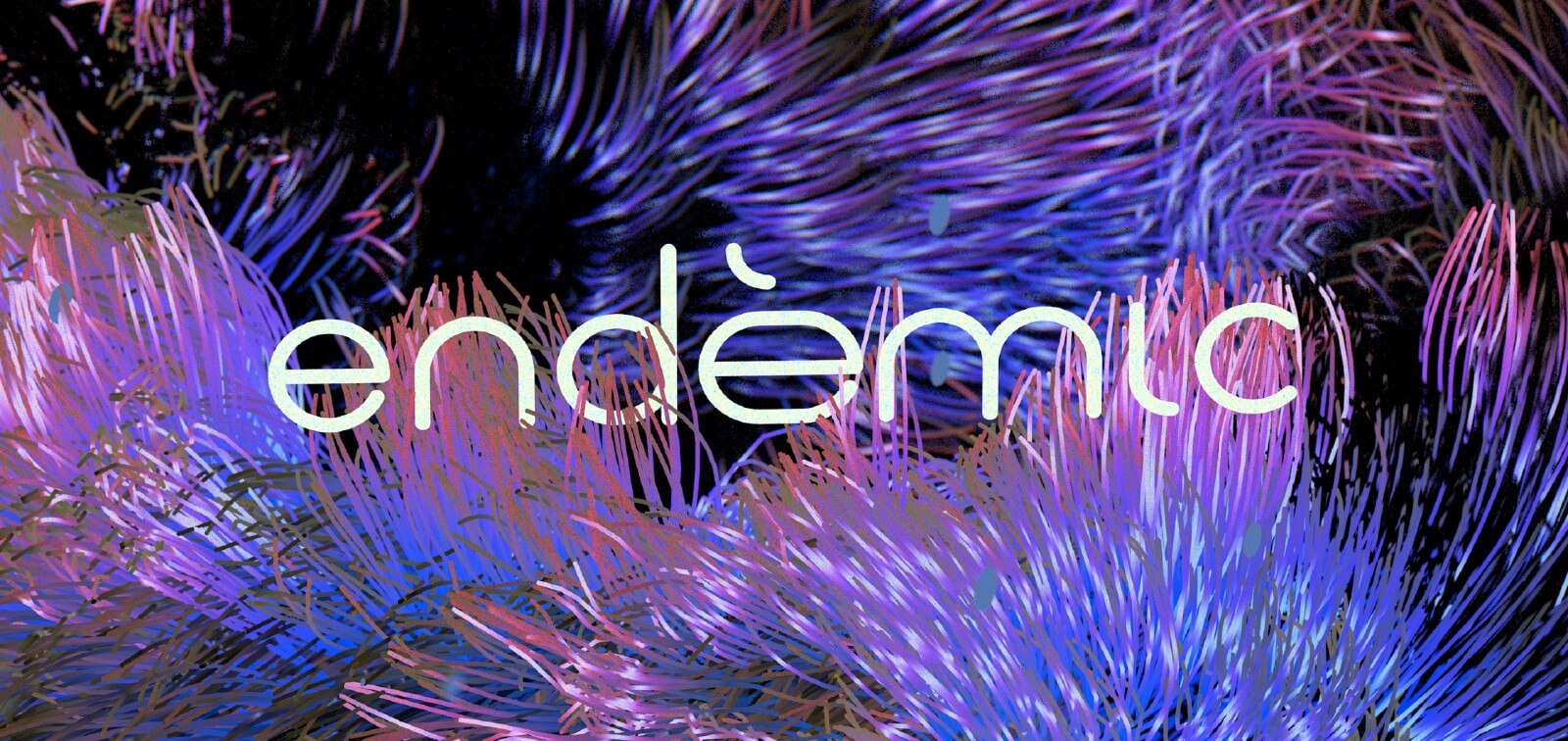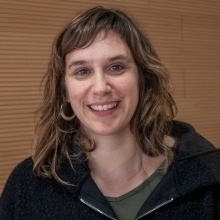ENDÈMIC
Community knowledge generation through scientific culture, urban ecology and art

- Duración
- 01/01/2023 - 01/09/2023
- Coordinador
- Marina Tarrús
- Financiadores
- AECID
- Página web
- http://www.projectendemic.com
ENDÈMIC generates interdisciplinary spaces to promote community engagement, democratization of knowledge and human resilience. Through citizen science processes in the field of microbiology and scientific dissemination with a focus on antimicrobial resistance (AMR), the project promotes collaborative research and environmental conservation from a biocultural approach, in addition to exploring the ethnobotany of medicinal plants in urban communities.
One of the main justifications for the project is based on understanding and raising awareness of the interrelationship between the crisis we face. Antibiotic resistance is a major global health challenge and threatens our ability to treat infectious diseases; by 2050, it will be one of the leading causes of mortality in the world, and the Mediterranean and South European countries are the most affected regions by AMR in Europe. The Covid-19 pandemic has aggravated the situation, making it even more urgent to raise awareness in the use of antibiotics, traditional medicine and hygiene habits to avoid infections and contagions. The WHO assures that traditional medicine and the use of medicinal plants is essential in health care and emphasizes the global need for natural products with antiseptic power for biomedical research to treat diseases. At this point, public health experts have begun to include ecology in their models, under the premise that the loss of biodiversity will limit the discovery of treatments for many diseases.
ENDÈMIC wants to contribute to the awareness on this issue and generates interdisciplinary spaces with a multimethodological approach to foster community engagement, cooperation between agents and experts, and human resilience through citizen science, scientific dissemination and art, promoting the collaborative generation of knowledge, the revaluation of the environment, urban ecology and ethnobotany in the field of microbiology.
Through participatory methodologies and collaborative research, we offer Citizen Science workshops in the field of Microbiology, focusing on Antimicrobial Resistance (AMR), which will be contextualized through the knowledge and diversity of native flora and local products with antiseptic potential (urban ecology), and later these lessons will be applied in workshops on cultivation and recovery of native medicinal flora (the essence of local identity and culture) in urban gardens, encouraging the exploration and experimentation of laboratory techniques and healthy habits. Thus, ENDÈMIC recollects the transition from microbiology to the field of urban ecology, promoting technological knowledge and community tracking of contemporary natural heritage and its content in native flora.
A fundamental aspect of ENDÈMIC is to address the complexity of these issues from a biocultural approach and promote art as a tool for scientific dissemination. This approach implies a benefit by integrating dialogue and reflection from the social and scientific sphere to the artistic sphere for its awareness.
At the end of 2021, a pilot was already implemented in Barcelona, where methodologies, contents, tools and citizen science workshops were developed with the local agents of La Sagrera neighborhood. In addition to the analysis and visualization of scientific data on ethnobotany and AMR, with interesting results and a lot of potential for antibiotic research, we also developed a visual identity, a web platform, scientific dissemination material, and an artistic representation of the results. Currently, a new edition based in Casablanca is being conducted to compare the use of medicinal plants across society and their antiseptic potential and activity.
Total funding
18,000 €
Nuestro equipo
Coordinator
-
 Marina Tarrús Técnica de divulgación científica de la iniciativa RAM
Marina Tarrús Técnica de divulgación científica de la iniciativa RAM
ISGlobal team
-
 Elisabet Guiral Gestora de programas y proyectos, y Coordinadora de la Iniciativa de Resistencias Antimicrobianas
Elisabet Guiral Gestora de programas y proyectos, y Coordinadora de la Iniciativa de Resistencias Antimicrobianas
Otros proyectos
Ver proyectos pasadosCOMBACTE
Combatiendo la Resistencia Bacteriana en Europa
GAMA
Development of Novel Gastrointestinal Biomarkers for Use in HIV Incidence Determination in a Sub-Saharan African Setting
Evaluación de estrategias para la erradicación de la enfermedad del Pian
Erradicación del Pian
Novel Marine Biomolecules against Biofilm (NoMorFilm)
Application to medical devices
COMBACTE-CARE
Combatting Bacterial Resistance in Europe - Carbapenem Resistance
MAMAH
Improving Maternal and Infant Health by reducing malaria risks in African women: evaluation of the safety and efficacy of dihydroartemisinin-piperaquine for intermittent preventive treatment of malaria in HIV-infected pregnant women
PreFIT
Predicting the Future: Incipient Tuberculosis
Predicting the Future: Incipient Tuberculosis
Encuesta serológica Cendea de Cizur
Cendea de Cizur
Projecte de Recerca en Resposta Immunitària i Epidemiologia de Malalties Infeccioses
Conèixer la propagació. Entendre la protecció
ANTICOV
Large Clinical Trial in Africa on the Treatment of Mild Cases of COVID-19
Stool4TB
Evaluating a new stool based qPCR for diagnosis of tuberculosis in children and people living with HIV
TB-RECONNECT
Reconnecting Transmission to Global Tuberculosis Control by Mapping Pathogen Transmission Events to Host Infection Status
SToolNIH
Quantifiable stool-based TB PCR to Improve Diagnostics and Treatment Monitoring
ALIA - Las ciudades y la salud
Planificación urbana, medio ambiente y salud | Clima y salud | Resistencias Antimicrobianas
END-VOC
ENDing COVID-19 Variants Of concern through Cohort studies (END-VOC)
TwinAir
Digital Twins Enabled Indoor Air Quality Management for Healthy Living
Estudio de la propagación de bacterias y genes de resistencia a los antibióticos en el ciclo integral del agua, en el área metropolitana de Barcelona
Propagación de la resistencia en aguas
Nuevos complejos de oro (III) frente a bacterias multirresistentes
Project Code: DTS21/00004
Desarrollo de dos nuevas estrategias terapéuticas (inhibidores de bombas de expulsion y ARN antisentido) activos frente a bacterias mutliresistentes
Más allá de la supresión vírica del VIH: un cuarto noventa para mejorar la salud de personas viviendo con el VIH en España
Project Code: PI20/01654
EpiGen
Building Scalable Pathogen Genomic Epidemiology in Ethiopia
Hepatitis C Free Baleares
Eliminating hepatitis C on the Balearic Islands (Mallorca, Menorca and Ibiza): a study in governmental and non-governmental addiction service centres, a mobile methadone unit and a prison to test and link people who use drugs to HCV care.
FLAVOBAC
Nuevas moléculas de oro coordinadas con flavonoides contra bacterias patógenas multirresistentes prioritarias
Evaluación de la eficacia del ácido acetilsalicílico a dosis bajas en la prevención de los efectos maternos y perinatales adversos en mujeres embarazadas infectadas por el SARS-CoV-2
INTE-AFRICA
Integrating and decentralizing diabetes and hypertension services in Africa



